Artificial Intelligence (AI) is no longer a futuristic concept—it is an essential component of modern business and marketing strategies. For B2B business leaders and marketers, AI offers transformative opportunities to streamline operations, enhance decision-making, and create deeper customer relationships. However, with these advancements come challenges that require a strategic approach to implementation. This article explores the key AI developments that B2B leaders should be aware of and how they can leverage them effectively.
AI-Powered Data Analytics for Smarter Decision-Making
AI-driven analytics enables B2B companies to extract meaningful insights from massive datasets, allowing for more informed business decisions. Advanced machine learning models analyze purchasing behaviors, engagement patterns, and historical data to identify trends and predict customer needs. AI enhances lead scoring, allowing sales and marketing teams to focus on high-value prospects with the greatest conversion potential.
Additionally, AI-powered CRM systems like Salesforce Einstein and HubSpot’s AI tools help automate data entry, identify patterns in customer interactions, and offer personalized recommendations. B2B leaders who embrace AI-driven analytics gain a competitive edge by making data-driven decisions that align with customer demands and market shifts.
Hyper-Personalization and AI-Driven Customer Experience
Personalization is no longer limited to B2C marketing. AI allows B2B companies to deliver highly personalized experiences tailored to individual decision-makers within target organizations. AI-powered tools analyze behavioral data, company demographics, and past interactions to customize email marketing, content recommendations, and sales outreach.
AI chatbots and virtual assistants are revolutionizing customer engagement, providing 24/7 support, answering inquiries, and streamlining the buyer’s journey. AI-driven personalization enhances Account-Based Marketing (ABM) strategies by delivering targeted messaging and content to key stakeholders, increasing engagement and conversion rates.
AI in Content Generation and Thought Leadership
AI is playing a significant role in B2B content marketing, assisting businesses in creating high-quality, relevant content at scale. AI-driven writing tools such as Jasper and Copy.ai generate blog posts, whitepapers, and reports that align with industry trends and audience preferences. Additionally, AI-powered sentiment analysis tools help marketers refine messaging and adjust content strategies based on audience reactions.
By leveraging AI for content generation and distribution, B2B companies can position themselves as industry thought leaders, providing valuable insights that drive brand authority and trust among potential clients.
AI-Driven Sales Enablement and Predictive Lead Scoring
Sales teams benefit from AI-powered tools that analyze data to predict which leads are most likely to convert. Predictive lead scoring leverages AI algorithms to rank prospects based on their likelihood of engaging with a company’s products or services. This enables sales teams to prioritize their efforts on high-potential leads rather than wasting resources on cold prospects.
Moreover, AI assists in sales forecasting by analyzing past sales data, customer behavior, and market conditions to provide accurate predictions for revenue growth. Tools like Gong.io use AI to analyze sales calls, providing insights into customer sentiment and optimizing sales strategies.
AI-Optimized B2B Advertising and Account-Based Marketing (ABM)
AI enhances B2B advertising by optimizing campaigns in real-time. AI-powered programmatic advertising ensures that ads are placed in front of the right decision-makers, improving targeting precision and reducing wasted ad spend. AI tools analyze engagement data and buyer intent signals to refine audience segmentation, increasing conversion rates.
In Account-Based Marketing (ABM), AI plays a critical role in identifying high-value accounts and crafting personalized outreach strategies. AI-driven platforms such as 6sense and Terminus analyze engagement data and predict which accounts are most likely to convert, allowing marketers to tailor messaging accordingly.
AI-Powered Automation in B2B Marketing Operations
AI streamlines repetitive marketing tasks, improving efficiency and reducing manual workload. From automated email sequences to chatbots handling customer inquiries, AI helps marketing teams focus on strategic initiatives rather than administrative tasks. AI-driven marketing automation platforms such as Marketo and Pardot optimize workflows, ensuring timely follow-ups, lead nurturing, and performance tracking.
Furthermore, AI-powered workflow automation integrates seamlessly with CRM systems, providing businesses with a unified view of customer interactions and campaign performance. This enables teams to execute data-driven marketing strategies with minimal human intervention.
Ethical AI Considerations and Data Privacy Compliance
As AI adoption in B2B marketing grows, ethical considerations and data privacy regulations become increasingly important. B2B companies must ensure transparency in AI-driven decision-making and avoid bias in algorithms that could impact targeting accuracy and lead scoring fairness.
Compliance with regulations such as GDPR and CCPA is essential when implementing AI-driven strategies. Businesses must be mindful of how AI collects, stores, and utilizes customer data, ensuring that AI-powered marketing efforts adhere to ethical and legal standards.
Final Thoughts: AI as a Competitive Advantage in B2B Marketing
AI is revolutionizing B2B marketing and sales strategies by driving efficiency, enhancing personalization, and improving data-driven decision-making. Business leaders who integrate AI into their marketing operations gain a significant competitive advantage, enabling them to engage prospects effectively, optimize campaigns, and improve overall ROI.
As AI continues to evolve, B2B companies must stay ahead by embracing AI-powered innovations while maintaining ethical and compliance considerations. The future of AI in B2B marketing is promising, and those who leverage its capabilities strategically will thrive in an increasingly digital landscape.
Are you ready to implement AI in your B2B marketing strategy? The time to innovate is now.
